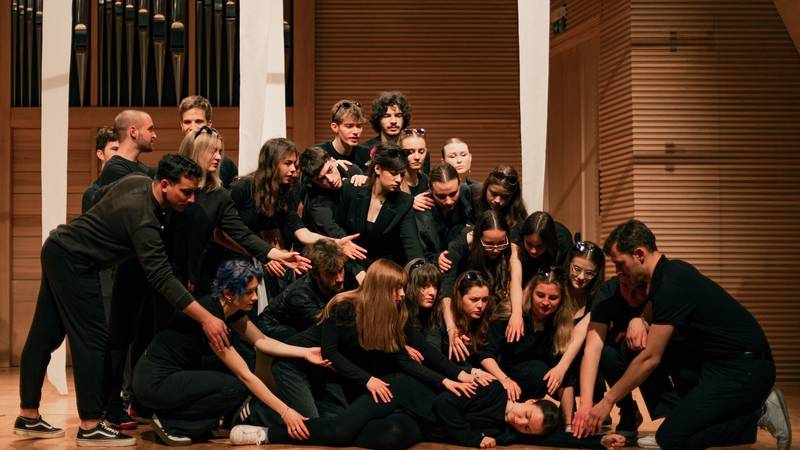As many as 250 students and mentors are doing the Croatian performance of Baroque Opera ‘Hippolytus and Arici’

Music Academy In cooperation with the Faculty of the Artistic Area of the University of Zagreb, it continues the tradition of connecting through opera projects and prepares the Croatian performance of Baroque Opera « Hippolite and Aricija » Jean-Philippe Rameau, which will premiere on Friday, April 11, 2025 at the Zagreb Concert Hall « Blagoje Bersa ».
The opera will be directed by Lea Anastasia Fleger, while the performance of soloists, actors, dancers, choirs and the symphony orchestra will be presented by conductor Franjo Bilic. More than 250 students and mentors participate in the project. It is a continuation of nurturing the tradition of connecting students and the Faculty of Arts – the Academy of Music, the Academy of Dramatic Arts, the Academy of Fine Arts, the Study of Design of the Faculty of Architecture and the Faculty of Textile Technology. Students will participate in all aspects of production – from the analysis of the score, vocal and instrumental preparations, to the design of the scenery, costume design and light design, thus providing a modern view of a rare opera repertoire.
« Hippolytus and Aricia » The first was the opened opera of French composer and music theorist Jean -Philippe Rameau (1683 – 1764) and will be presented to the Croatian audience for the first time. Rameau began working at the opera at the age of 50 and soon gained the status of one of the most important composers of the French Baroque. Until then, he was known to the public primarily as a music theorist by publishing works « Discussion on Harmony » and « New Music Theory Systems ».
The « Hippolytus and Arici » opera opened in 1733 in Paris, is based on the librett of Simon-Joseph Pellegrin, inspired by Racine’s « Fedr », Euripid’s « Hippolitic » and Seneka’s « Fedrom ».






:format(webp)/s3/static.nrc.nl/wp-content/uploads/2025/06/05163439/data133217982-f902a2.jpg)
